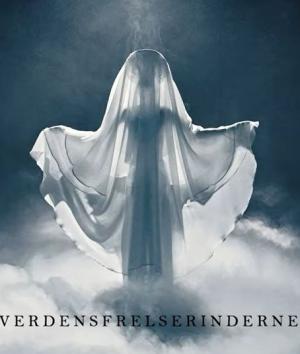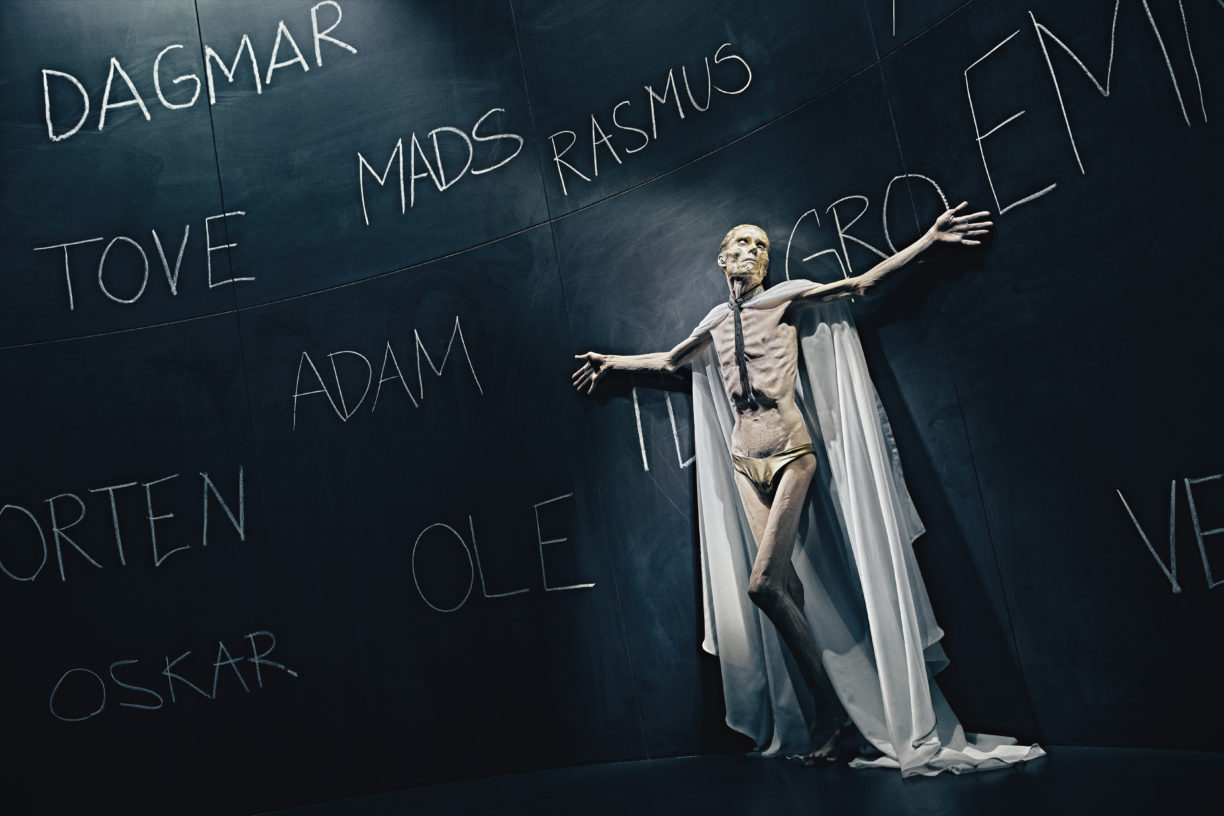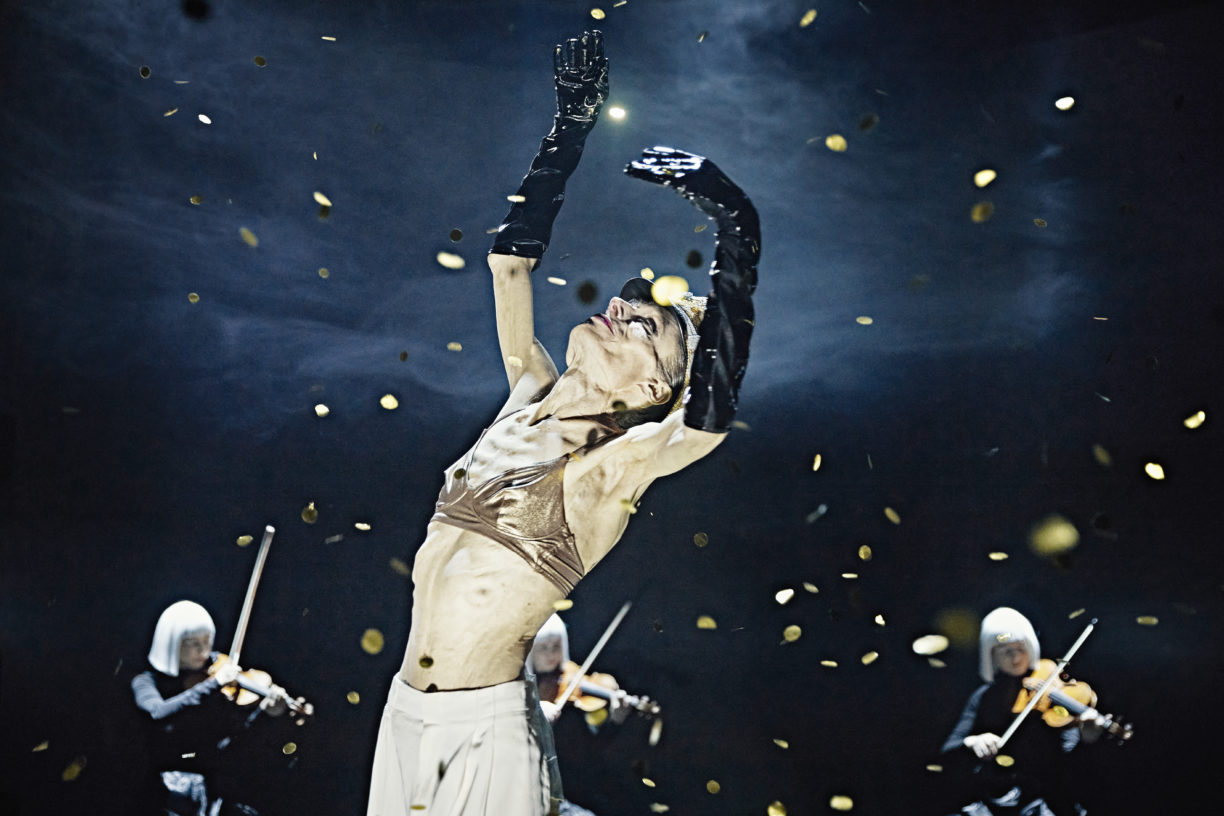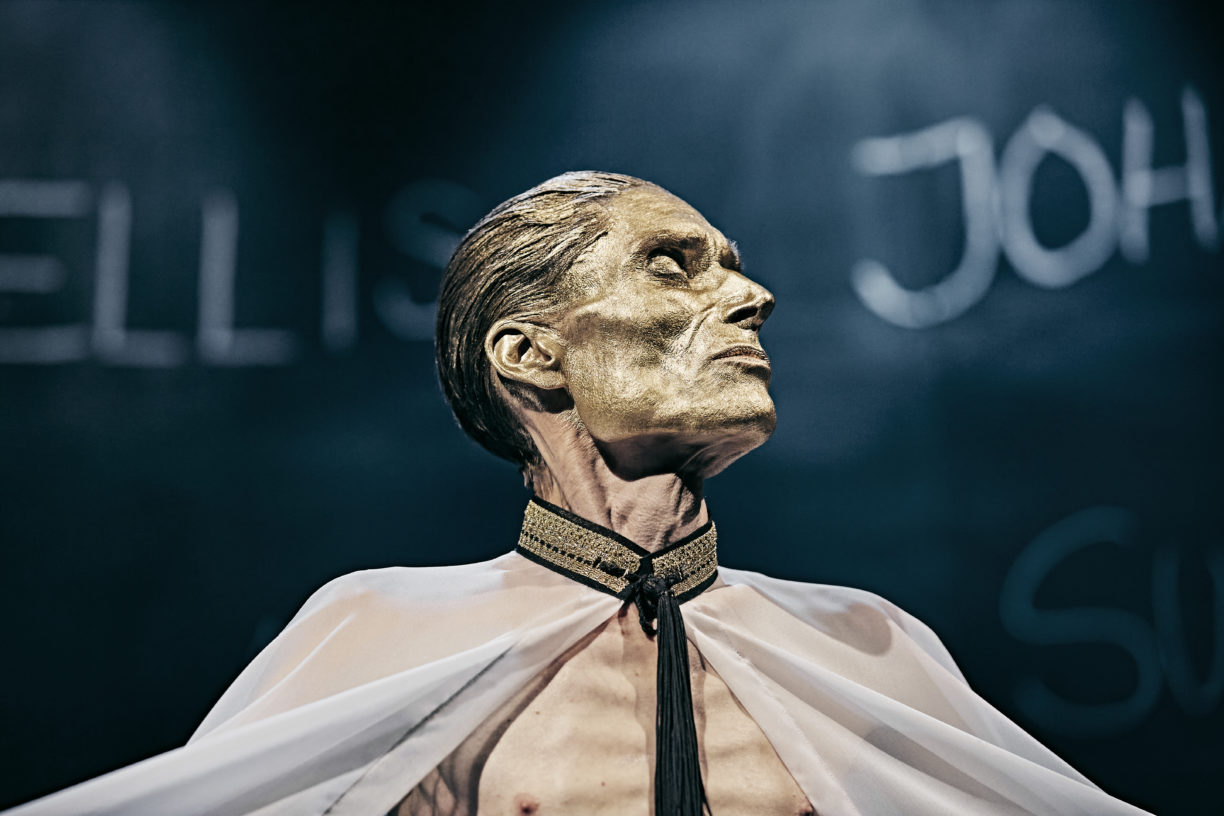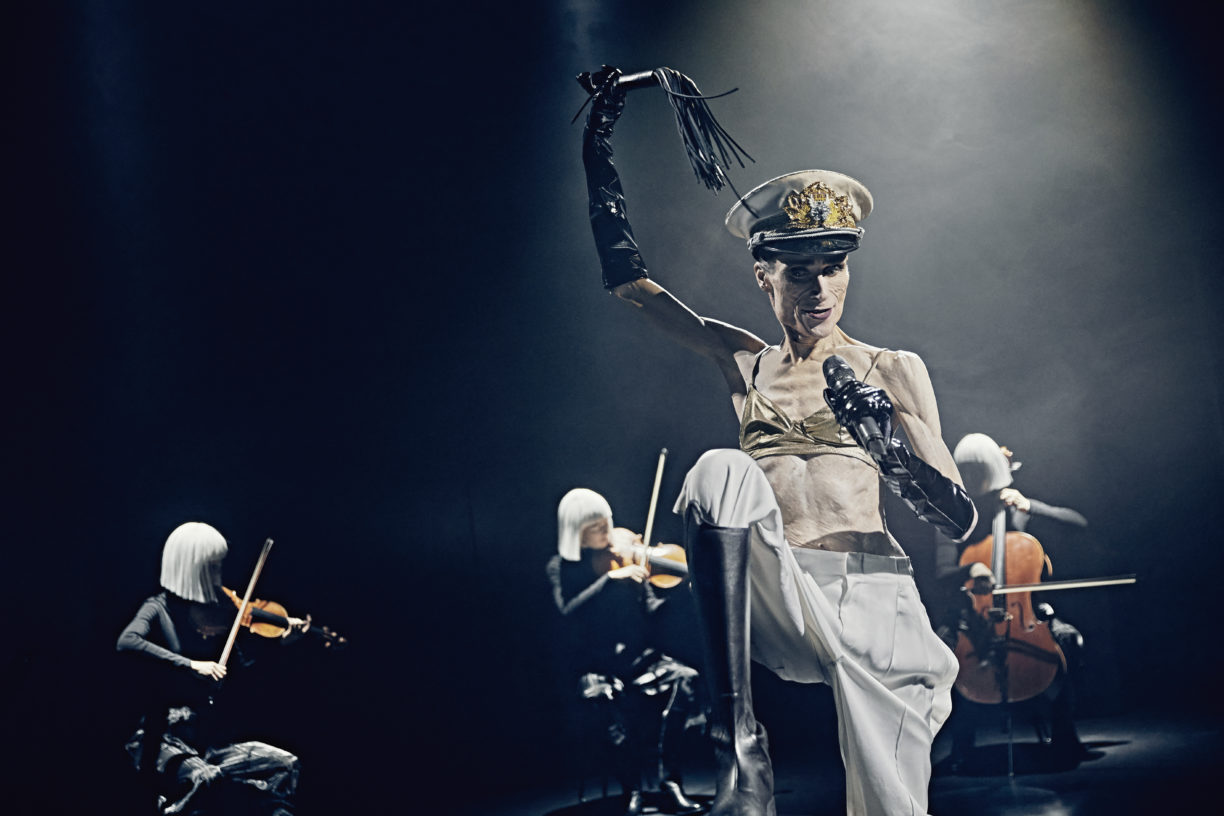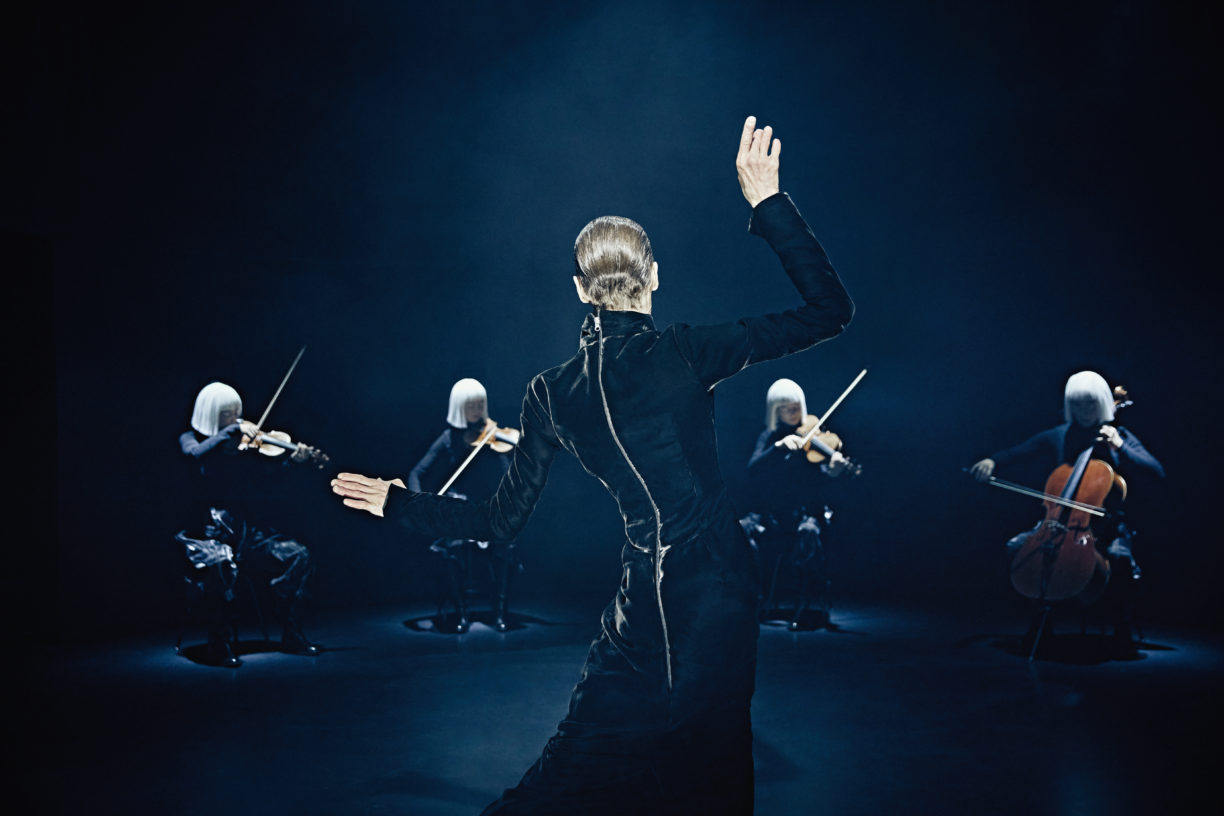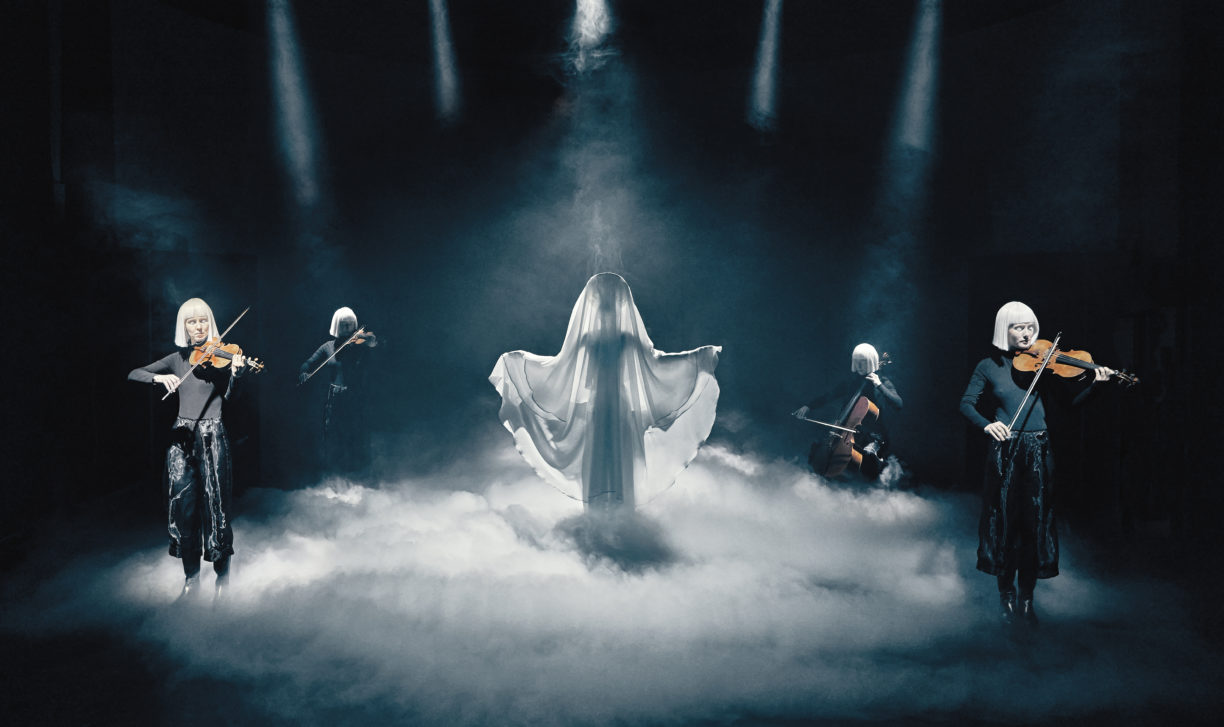21st century, post-industrial era, age of communication (with all the human interconnections it entails): the possibility of accessing any place on Earth in (more or less than) 24 hours compresses the space, the possibility to contact any person wherever they may be (considered as a technical gain, mobile phones, world wide web and social networks); globalization (cultural or otherwise). In this era, the idea of identity as something fixed by a nation, by a language, considered as a matter of (not having) political and gender rights is questioned by the possibility of communication itself, a possibility that transcends borders, formats the space of utterance (the space of being-as-time, as actual moment), that becomes universal among humans, as gesture-word-images universe, as media(tized)-universe. With her art, Madame Nielsen enlivens this human potentiality, with its contradictory nuances, which also examine legal aspects of identity and, through the metamorphosis of identity, it questions the idea of being-an-outlawed-existence; she puts them together in an art-life-avatar, a complete philosophical oeuvre: a total-message, limit-exposing, the paradox itself.
Madame Nielsen's given name is Claus Beck-Nielsen, a persona-in progress which, in the '90s was already experiencing the double life: in Denmark he was a married man with a child, in Germany was Some Body (a body with no identity) who/which was raising self-hypostasis. At the start of the 2000s, Claus Beck-Nielsen is declared dead and the body with no identity that remained is hired as director by his "The Factory" in Hannover, Germany, The Beckwerk. The Beckwerk was opened to commemorate Claus Beck-Nielsen and to continue the work of the deceased artist. Between 2001 and 2010, the body was engaged in projects for the Beckwerk, under its leading, where it explores facets of identity. After 9/11, when the War on Terror/Al Qaeda was declared and when the US program to seed democracy in the Middle East started, it builds a website, binnielsen.com, where it presents the political history of The Return of the Evil One as Goodness Itself in self filmed tapes. In the next years it embodied personalities which work to spread democracy through the Middle East. It is so performative in its staged-reality projects that, through the NGO that leads these political operations, it is received in US administration bureaus in Washington to talk about the goals of its democratic missionary proposals. Later, with the exodus of the Syrians to the Scandinavian Peninsula, Nielsen travels with them, on foot, from Greece to Scandianvia, to live the repersonalization as migrant, as cultural-contact-in progress. These experiences are registered in Nielsen's literature that opens new conceptual doors: life experience, the bildungsroman as ready-made, life lived as staged-life, transferred on the literary stage. At the end of the first decade of the 21st century, the body of Claus Beck-Nielsen was presented dead and the Beckwerk organizes its burial (a burial lived first-hand) in Assistens Cemetary in Copenhagen. After a time of mourning for Claus Beck-Nielsen, Beckwerk is closed as it fulfilled its objectives.
The art(istic) travels, the places brought into her performances and theatrical shows from around the world form a contemporary map which makes Madame Nielsen (the act-ual persona), as an artist, a true explorer and cartographer, a postmodern James-Cook-citizen-of-the-world. Any successful contemporary artist gathers in his/her career many exhibitions in important places on earth. The difference here is that Claus Beck-Nielsen, through his ego-as-alter-ego - Claus Nielsen, Helge Bille, Agent Nielsen, Nielsen, Madame Nielsen, metamorphoses himself in an artistic object which, through its life, transforms the world in an art scene for an oeuvre lived live.
Verdensfrelsedinderne (World Saviors) is a recent Madame Nielsen project. It is a musical performance that had its premiere in 2021 on the scenes of Aarhus, Copenhagen and Odense. In this work, the artist turns the meaning of its identity journey into an urge to push the boundaries of gender and personal identity into an effort to save the planet from an impending disaster, re-indentified here, after the terrorism era and after East-West clash, in the issue of global warming.
Beyond the theatrical performance, the musical work has a life of its own. The album has ten tracks and is performed by Madame Nielsen together with the Danish quartet Halvcirkel, consisting of Betina Marie Ezaki and Pernille Kristiansen on violin, Mika Persdotter on viola and Nicole Hogstrand on cello. The music and lyrics are written by Madame Nielsen (except for the music of the Overture, composed by Halvcirkel), the second movement of Beethoven's 7th Symphony, Gaiacirklen, where the music is composed by Kliche, Sinnerman, composed by Will Holt and Maria Regina Martyrium composed by Hildegard von Binden and transformed by Halvcirkel. All compositions were adapted for string quartet by Halvcirkel. And the sound effects are done by Mads Emil Nielsen.
Verdensfrelsedinderne is a modern composition that I would frame in the classical-avant-garde space, in the area of minimalist chamber music. At the same time, the pastiche-hommage reconstruction (we may call this part of the project a musical reconstruction by identity alteration) of some pop-rock elements (Will Holt, Smells Like Teen Spirit by Nirvana; plus the lyrics - their interpretation) and the intervention on the classical composition (Beethoven's 7th Symphony brought here as Beethoven 7th Terror) make me place the project in the area of postmodern musical performance (ready-made elements part of a context that has the above nuances - classical, avant-garde, minimalism). The composition may be reminiscent of Steve Reich, may be reminiscent of Luciano Berio, of Schnittke's strength, may be reminiscent of Uri Caine's musical ideas (Wagner e Venezia, The Goldberg Variations, Mahler-Caine: The Drummer Boy), but it is undoubtedly an original, consistent work, one of the most powerful musical proposals in recent times.
The second track on the disc, Jesus (just like you and me) talks about loneliness. An odyssey of Jesus, a Jesus among us, with all the signs of modern life: in the marketplace, in the cafe, at the gym, talking on his cell phone, playing video games, wearing Adidas, at McDonald's - things presented in clever words that are fun&serious and that emphasize our image as humanity: each of us alone, in a staged story, as may be the story of Jesus himself, a staging staged by someone else (Madame Nielsen, here). In fact, the lyrics open up complex correspondences, which build an image of contemporary social relations and practices (a veridical and critical image at the same time). In the end, this image is much more beautiful to discover - as the play says - by ourselves, having in mind a desired moment to be together
(cut to)
The message of the next track, which talks about the phone, the pet or the holidays, how they cannot replace the warmth of human arms. The music performed by Halvcirkel embrace the lyrics performed by Nielsen, points out the drama of the performance, highlights the depth of the need/desire of community. Inventive-playful, witty/spiritual, Let's End History is an image of our marginal place inside the cosmos...
I will not tarry on each track. On the one hand, in trying to emphasize certain cultural openings in the lyrics and in the relation between lyrics and music one reduces the multitude of meanings the album entails (and one should not try to catch as many as possible if the text is to remain readable lengthwise). On the other, the beauty of their discovery, the journey with Madame Nielsen in this exploration of the human universe, makes much more sense and brings much more joy if it is done in direct relation to the musical material by each of us. It is a combination of poetry and music (where music becomes a poetic image projected towards us), which opens the world as interpretation (Madame Nielsen's, our own, along with her images), a powerful one. Lyrics in English, Danish, German and Latin, an hour of drama and hope (When He died, God turned into music, says Madame Nielsen), catharsis endlessly-fulfilled.
Verdensfrelsedinderne may be bought on CD from Thiemers Magasin, music and book store from Copenhagen and, online, from Rillbar Denmark. Verdensfrelsedinderne may be listened on streaming platforms - Tidal, Applemusic.
(Translated from Romanian by Lucian Maier, Revised by Adrian Costache)
(Photo: Sebastian Freire from the performance with the same name, directed by Christian Lollike)
